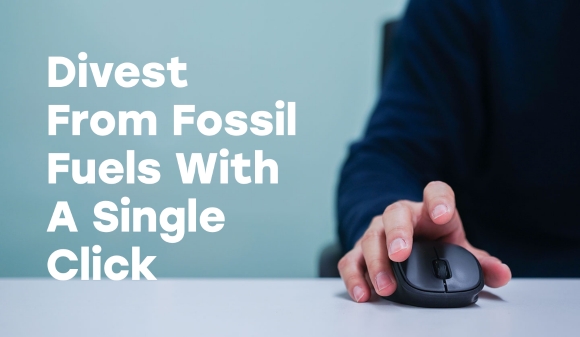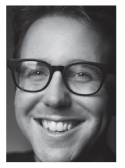Divest From Fossil Fuels With A Single Click

 Ecologists understand that diversity helps to build a resilient ecosystem. Likewise, investors understand that diversification brings a more resilient portfolio. Finding the right mix of global stocks and bonds has been a winning ticket for long-term investors—and now they’re available to sustainably-minded investors, too.
Ecologists understand that diversity helps to build a resilient ecosystem. Likewise, investors understand that diversification brings a more resilient portfolio. Finding the right mix of global stocks and bonds has been a winning ticket for long-term investors—and now they’re available to sustainably-minded investors, too.
Do-it-Yourself (DIY) investors who want to divest from fossil fuels can now purchase a single fund and get a broad mix of global stocks and bonds. The new iShares ESG (Environmental, Social, Governance) ETF Portfolios (available in Canada through any online brokerage) are part of Blackrock’s—the world’s largest asset manager—commitment to put climate change and sustainability at the centre of its investing approach. These portfolios are game-changers for sustainable investing, making it so much easier and more accessible for smaller investors who want to use a buy and hold strategy.
Up until a few years ago, DIY investors using Exchange-Traded Funds (ETFs) had to go through the pain of buying stock ETFs and bond ETFs separately. Moreover, stocks were split up by geographic location so we had to buy at least three or four different funds to get global exposure. The ETF industry has been steadily catching up and I’ve watched as the Canadian Couch Potato model portfolios (the standard bearer for Canadian DIY investors) have quickly gone from five funds down to three, and now to a single “all-in-one” ETF from providers like Vanguard, iShares, and BMO.
All-in-one ETFs, also known as “asset allocation” or “one-click” funds are very similar to the balanced mutual funds that are so popular at the banks. Instead of buying separate funds for Canadian stocks, U.S. stocks, international stocks and bonds, asset allocation ETFs combine all those different asset classes in just one fund. All-in-one ETFs automatically rebalance as the market swings back and forth, ensuring that investors never end up taking too much—or too little—risk. Understandably, these all-in-one ETFs are very popular in Canada with over $4.5 billion assets under management.
Sustainable investment options have always lagged behind with these types of innovation in the investment world. When a pipeline activist came to me in 2014 demanding that not one penny go towards coal, tar sands, or pipelines, I had to stretch my creative boundaries and cobble together a model portfolio using 11 different sector ETFs. Even funds labelled ethical and green generally contained fossil fuel holdings. So, imagine my delight that iShares announced a lineup of “all-in-one” ETFs based on their “ESG Advanced” series of sustainable funds.
According to its methodology brief, the iShares ESG Advanced funds exclude ethically questionable businesses including fossil fuels, adult entertainment, alcohol, weapons, for-profit prisons, gambling, genetically modified organisms (GMOs), nuclear power, palm oil, predatory lending, and tobacco. Additionally, the funds exclude companies from any sector with a major controversy or who have a poor ESG rating. If you want a deeper dive on the iShares ESG Advanced family of ETFs, check out my YouTube review.
The most stringent of sustainable investors will still take issue with some companies in this iShares portfolio. The funds have what’s called a “home bias” meaning that they have a deliberately high allocation to the Canadian stock market, so investors in these funds end up overweight in the financial sector. Big banks like RBC, TD Canada Trust and Scotiabank still feature prominently despite their massive investments in oil and gas, since they have a heavy weight in the Canadian market. The same is true with mining, since a disproportionate number of mining companies are listed in Canada.
These new ETF portfolios are just so cheap, simple, and straightforward that they eliminate many of the trade-offs that sustainable investors previously had to contend with. Whether they win favour with every sustainable investor in Canada is another matter.
Tim Nash is the founder of Good Investing, a fee-for-service financial planning firm that specializes in sustainable investments. https://www.goodinvesting.com/about


